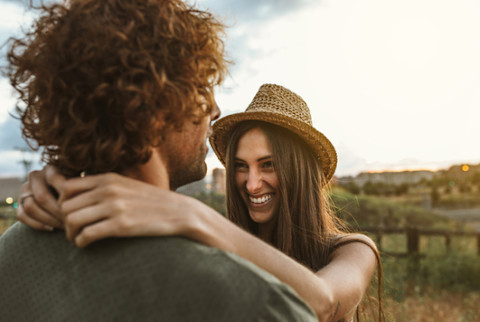
The Taker-Caretaker Model for romantic relationships:
When I was growing up, I was taught that I couldn't be all that I am and be attractive to boys. I was taught that girls had to give themselves up and become caretakers to boys for the boys to like us. I was taught not to appear too smart because then I would make the boys feel bad about themselves. I learned my lessons well. Very well.
And, for me, the warnings were true. When I finally stop giving myself up and stopped taking care of my husband, my 30-year marriage fell apart.
But that was over 20 years ago and, fortunately, things are changing. For example, I recently received this email from a member of our website community:
"I am a giver and my partner is a taker. However, as I've started to care for myself, my relationship is shifting for the better. Is it possible that a taker finds it more attractive when his or her partner actually stops being a caretaker? I've noticed my partner is actually starting to give me more in the relationship than he ever did because I'm learning to give to myself first."
This seems to be occurring more and more. In the past (I've been working with individuals and couples for 49 years), when one partner started to take loving care of themselves and stopped trying to control their partner with their caretaking, the relationship often went into turmoil. Today, I see relationships healing when the caretaker starts to take loving care of him- or herself.
Even as it seems that narcissism is on the rise, so is the desire for true connection and intimacy—which can't occur in the taker-caretaker relationship. So when one partner in this codependent system decides to do their inner work and learns to love themselves, now, more often than not the relationship greatly improves.
The Taker-Caretaker model for family relationships and friendships:
If you have been a caretaker in your family of origin—giving yourself up to your parents and/or your siblings—it's likely that you will go through a period of disconnection from them as your growth changes your behavior. But over time, as they come to accept that you will no longer allow yourself to be used by them, they will likely eventually come around to treating you with the respect you deserve.
Often, they even come to experience themselves in a more positive way since being in a mutually respectful relationship feels much better than the codependent patterns. Most of my clients who take the risk of learning to love themselves find that it's worth the two or three years of turmoil or distance to create new and more respectful relationships within their family of origin.
Friendships are often a different story. If you have been giving yourself up in your friendships—listening to the other person talk on and on and supporting them without being supported by them—you might find your friends very angry when you finally set appropriate boundaries against being used by them.
You might go through a period where it feels as if you are losing all your friends, but don't despair—new friends are on the horizon! The more you learn to love yourself, the more you will attract friends who also love themselves and who want an equal friendship rather than a one-way street.
Learning to love yourself is a great way of discovering who your friends really are. Those who really care about you will applaud that you are taking loving care of yourself, and those who were just using you will be angry with you. While it's painful to find out that some of your friends don't really care about your well-being, it is far better to find this out than to continue to give yourself up.
Many people have a deep fear of being isolated from "their tribe," so it takes courage to learn to love yourself rather than to keep giving yourself up. Sometimes we need to find a new tribe—a tribe that supports us rather than uses us, but everyone I've worked with who has taken this risk is so happy they did!
It's very worth the risk of losing others to gain yourself.
Related reads:
Start learning how to love yourself by taking our free Inner Bonding course.
